
This article will be difficult to follow for those not well-versed in the Olympic qualification system. Read our UKC article on the selection process for more information. In short, from all available information, it appears that the IFSC's Host Place rule was not explicit and was misinterpreted by the JMSCA, leading to their plans for a Japanese athlete 'pool' framework on the basis of a 'guaranteed' spot open to their choice. Last-minute rule changes regarding selection for the Toulouse qualification event and miscommunications are further complicating the situation.
According to a report on climbers-web.jp, the Japan Mountaineering and Sport Climbing Association (JMSCA) are suing the International Federation of Sport Climbing in the Court of Arbitration for Sport. The lawsuit is on as yet undefined grounds, but reports suggest that it is related to changes to, or differing interpretations of, the qualification framework to the Tokyo 2020 Olympic Games. In the past week, discussions between federations and athletes revealed that the IFSC sent 40 invitations to the IFSC Combined Qualifier event in Toulouse this month to the 20 top-ranked climbers of each sex in the 2019 Combined World Rankings, only to subsequently delete a maximum quota of 2 athletes per country from the selection document a few days later, meaning that some invited athletes were no longer eligible to compete. Meanwhile, confusion abounds over Japan's athlete selection decisions from the Hachioji Combined World Championships and their athletes' further participation along the selection pathway.
When emailed for comment, the IFSC responded:
'At this time, we cannot comment on the names of the athletes involved as the situation remains temporary and more clarification is needed on the JMSCA case. But to the knowledge of the IFSC, their claim is not related to the rule change. As always, our goal is to protect our athletes and the IFSC is managing this situation as best as possible.'
The IFSC's reference to 'the rule change' is ambiguous, but appears to refer to the deletion of the 2-per-country quota rule for participation in the Toulouse event. Confusion surrounding the situation is two-pronged, concerning invitations for the upcoming IFSC Combined Qualifier event in Toulouse and differing interpretations of the selection process for Japan's Olympic quota places, given their dominance in the sport, the limited places per country and their status as Host Country.
In May 2019, a climbers-web.jp article outlined the JMSCA's understanding of and plans for the Olympic selection process. The piece explained that the top-ranked Japanese athlete per sex in the IFSC Combined World Championships in Hachioji in August would be 'priority selection' athletes and hence be guaranteed an Olympic quota place by the JMSCA. The remaining spot per sex would 'be selected at the 3rd Combined Japan Cup (CJC) next May [2020].' This process was based on the JMSCA's interpretation that 'up to five Japanese athletes [per sex] can acquire qualification slots through the three tournaments' (potentially 2 in Hachioji/2 in Toulouse/1 in the Asian Championships [the winner only]) due to their interpretation of the '2 athletes per country rule' to form a pool of eligible athletes to select from. This option would enable JMSCA selectors to wait until a deadline closer to the Olympic Games and pick their fittest climbers with the highest medal potential. If no Japanese athletes were to qualify, or if only 1 athlete qualified, then the JMSCA planned to use their Host Country place, according to the article.
Following the IFSC Combined World Championships in Hachioji in August, Akiyo Noguchi (JPN) and Tomoa Narasaki (JPN) were reported as being the JMSCA's first quota place selections, based on their top-ranking performances in the Combined final (2nd and 1st in the event respectively) within the Japanese team. Online speculation as to how the JMSCA would select for the remaining 2 spots (1 male, 1 female) ensued, but the overriding opinion in comments and reports was that they would stick to the plan as outlined in the May article and defer their second spot selections.
As the Olympic host country in 2020, Japan is entitled to 1 Host Place per sex, but their prowess on the IFSC World Cup circuit this year has resulted in 6 Japanese men and 4 women ranking in the top 20 combined athletes. In his UKC article on Olympic selection, Charlie Boscoe outlined the widely-held interpretation of the Host Country quota place, as defined by the IFSC's Olympic Qualification pathway document:
'In the highly likely event that 2 Japanese climbers per gender have qualified anyway, this unused Host Country Place would go to the next highest placed climber in the Combined World Championships in Hachioji 2019 who is not yet qualified (and doesn't come from a country with 2 climbers already qualified). If 2 Japanese climbers qualify through Hachioji, Toulouse or the Asian Championship, they won't get a 3rd climber under the Host Country system; there will be a maximum of 2 Japanese climbers per gender regardless of how they are selected.'
The fact that 2 Japanese climbers in each category placed in the top 7 in Hachioji meant that Jessica Pilz (AUT) and Sean McColl (CAN) received quota places, irrespective of how Japan selected from the event: either via the unused Host Place if Japan selected two athletes from Hachioji, or via Hachioji quota if they selected just one Japanese athlete.
However, the Olympic selection criteria document gives no clear indication as to how the Host Country place is determined. It does not specifically say that Japan can choose their host country place, nor does it specify whether or not this place is only to be used as a redundancy of sorts if the host country fails to qualify at least one athlete. In the climbers.jp report, the JMSCA argues that they received confirmation from the IFSC that their understanding of the Olympic Qualification system, that they can use and choose the host country place, was correct.
In-keeping with the JMSCA's announcement that 1 Japanese athlete per sex would be chosen from Hachioji, it was widely reported online that the JMSCA were delaying immediate selection of Miho Nonaka and Kai Harada - the next highest-ranking Japanese athletes in Hachioji - to compete for the second confirmed Japanese Olympic quota place in a national selection event next year, alongside any eligible athletes with quota places from Toulouse and the Asian Championships. However, in the list of confirmed Olympic-qualified athletes, published on 4th November on the IFSC website, both Nonaka and Harada are named. When asked about their inclusion in the list - which until this point had been unconfirmed and by and large not expected by the online community - the IFSC told UKC:
'Japan claimed both of their two men and women athlete places at the same time, immediately after the World Championships in Hachioji.'
According to the climbers-web.jp article about the lawsuit and associated confusion, the JMSCA reportedly argues that their selection method - working on the basis that 5 Japanese athletes per sex could potentially earn quota places along the selection pathway, of which two would ultimately be selected - was approved by the IFSC. The article mentions that an IFSC document sent to the JMSCA in October included a possible 'new interpretation' involving a quota of 2. It is unclear from the article precisely what this quota refers to, but from later context it appears to mean that once two athletes earn a quota place, they cannot participate in further qualification pathway events: 'The road to the Olympics will be cut off for players aiming for the third to fifth slots', the article later states. Details of this document have not been made public, since it will play a key role in the legal proceedings.
Moreover, the IFSC reportedly pointed out in this exchange that the Host Country place, which the JMSCA had 'planned to be used flexibly', could only be used if Japan failed to earn any quota places along the qualification pathway. In response to the IFSC's information, the article states that the JMSCA 'asked for explanations many times on the assumption that there was a possibility that the conventional selection method was changed, but it was said that sufficient response was not obtained.'
In a JMSCA press release, president Kuniaki Yagihara wrote: 'In the new interpretation, the IFSC has a different interpretation of the host country quota, so this is also a dispute in the Court of Arbitration. It is extremely regrettable that this has happened, but we will make every effort to ensure that all athletes who want to participate in the 2020 Tokyo Olympics are not cut off.'
Regarding the Toulouse selection list, now that the country quota maximum of 2 has been removed from the selection document, Japan can send 4 men to the selection event, since Rei Sugimoto and Keita Dohi are now eligible for selection (behind Kokoro Fujii and Meichi Narasaki, disregarding confirmed Olympic qualifiers Tomoa Narasaki and Kai Harada). The French and USA teams are equally affected, since both have >2 athletes in the top 20. Anouck Jaubert (FRA) and Margo Hayes (USA) are now eligible to compete under the amendment. However, in adding these 4 athletes, 4 climbers from other nations consequently had their invitations revoked: Sandra Lettner (AUT), Iuliia Kaplina (RUS), Jernej Kruder (SLO), and Aleksei Rubtsov (RUS). Some of these athletes whose rankings appeared firmly in the top 20 skipped World Cup events towards the end of the season in order to focus on training for Toulouse, which in retrospect potentially could have boosted their ranking and protected them from the unforeseen rule change.
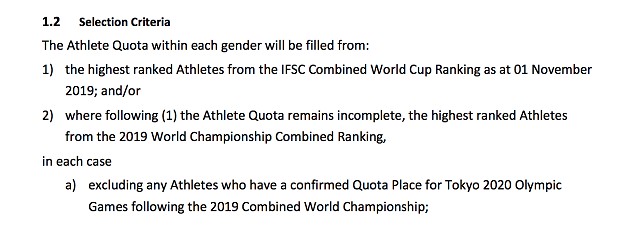
Similarly unclear was the point at which the Tripartite Commission Invitation Place would be used. In previous versions of the document, no timeline for its selection was mentioned, but the document was later amended to situate selection the end of the qualification pathway, in line with this IOC document found on World Archery website. As the rules currently state, if there is no Tripartite allocation - for nations who have been underrepresented in the previous two Olympic Games - then the places would reallocate to the next 2 highest-placed, eligible athletes from Hachioji (Anouck Jaubert and Yannick Flohé). Prior to clarification of when the Tripartite decision would be made, it appeared plausible that Jaubert and Flohé could acquire these quota places between Hachioji and Toulouse, which would consequently rule them out of the Toulouse selection event and open the door for 2 more athletes to compete.
Kokoro Fujii, Meichi Narasaki, Ai Mori and Futaba Ito will participate in Toulouse as scheduled, according to the climbers-web.jp article. Meanwhile, the IFSC has put confirming the Toulouse qualification list on hold for now. They told UKC:
'Regarding the Toulouse athletes list, the IFSC has frozen the list checking with National Federations until the event registration deadline.'
President of the IFSC Athletes' Commission, Sean McColl, shared the following statement with UKC:
'This is really hard for all athletes involved. We should however be patient until November 12th to get the final list of accepted athletes. I encourage any and all athletes to contact myself or any AC member (athletes@ifsc-climbing.org) for further questions or clarifications on this matter, or the Olympic Games Qualification System. There is a lot of false information floating around so be sure you're informed from verified sources.'
An updated set of rules for the Combined Qualifier QS can be found on the IFSC rules section of the website and on the event info sheet.
In Toulouse, the top 6 athletes per sex will qualify for an Olympic quota place, excluding those ruled out by the 2-per-country maximum rule. The athletes that have already received a confirmed Olympic quota place are:
Women
Janja GARNBRET
Akiyo NOGUCHI
Shauna COXSEY
Aleksandra MIROSLAW
Miho NONAKA
Brooke RABOUTOU
Jessica PILZ
Men
Tomoa NARASAKI
Jakob SCHUBERT
Rishat KHAIBULLIN
Kai HARADA
Mickael MAWEM
Alex MEGOS
Ludovico FOSSALI
Sean MCCOLL



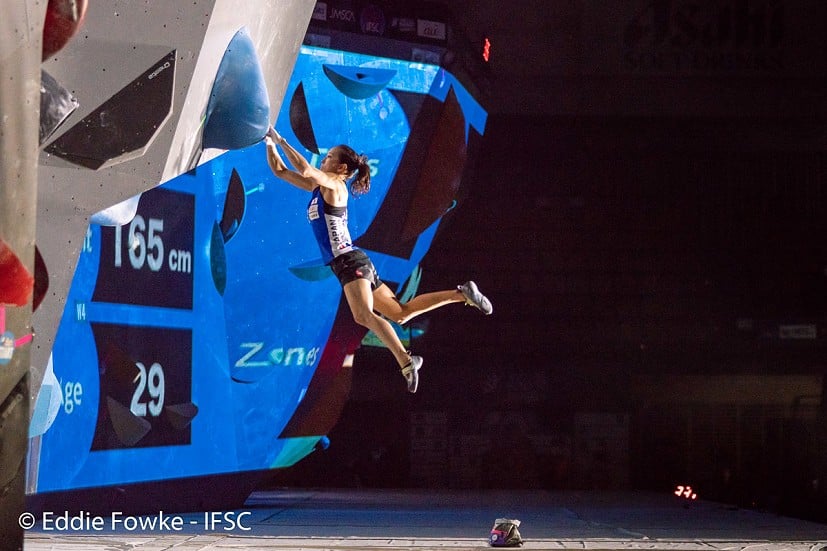



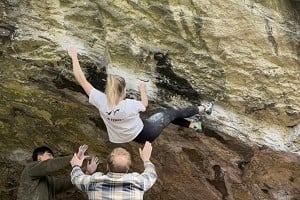
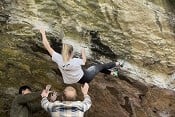
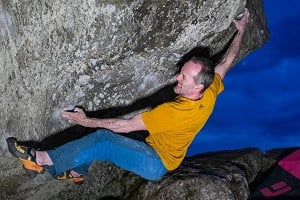
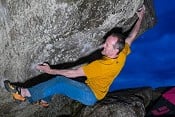

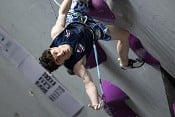
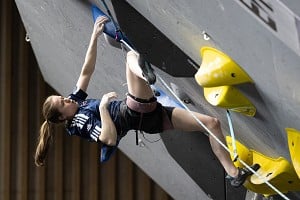
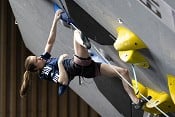
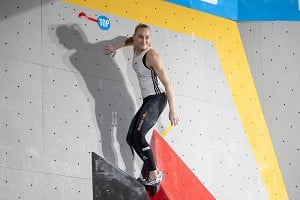
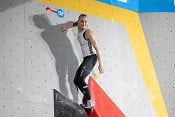
Comments
Well that looks a pretty comprehensive summary of where we're at. All a bit of a mess but seems to have resulted from genuine misunderstanding rather than any real intent to pervert the process. Though, has to be said, the original Japanese plan did seem to be taking the p!ss a bit and their continuing involvement in the selection events will win them few friends.
My head hurts.
Thanks for the really comprehensive report. I don't envy the time it will have taken to write this all up in a sensible way.
Thanks for the detailed report.
I hope IFSC and JMSCA will resolve this quickly so that athletes don't get jerked around and climbing doesn't get a black eye in the minds of future olympic committees.
“And he puzzled and puzzled 'till his puzzler was sore. Then the Grinch thought of something he hadn't before. What if CLIMBING, he thought, doesn't come from a store. What if CLIMBING, perhaps, means a little bit more.”
My head still hurts. Learning Japanese is easier!